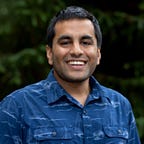I’m an Ally — and still very much part of the problem.
The past 48 hours have been an interesting ride.
In the democratization of access to organizations, media, and social threads elevating the voices and needs of the black community, there has also been an interesting pause amongst people — followed by a quick jump onto a position they want to take.
There is a side that misses the mark pretty obviously — the “Racism ended when we elected Barack Obama” camp, just waiting to pounce on a corporate statement yelling how they’re ready to unsubscribe from Netflix. The protestors barking “All Lives Matter” and showing up at protests with machetes and crossbows. The guy who told Martin Luther King III’s son what his father would have thought about riots.
But — in most cases, there is a more nuanced side.
The people who are willing to post “Black Lives Matter”, donate to the Minnesota Freedom Fund, stay vocal about oppression and change on Facebook and Twitter.
The camp of the allies.
The people ready to stand in solidarity.
The people who would never in a million years consider themselves racists.
That was the camp I found myself in. I considered myself an ally — and it has become increasingly hard to use this fact to absolve myself from the problem.
I consider myself a nice guy.
Maybe not supremely “woke” or the definition of a particularly effective activist — but a racist? Complicit in racial injustice?
No — my worldview was “too progressive” to fall into those categories.
I spent college regularly volunteering, tutoring in Prince Georges County outside the University of Maryland in a county that tracked close to 89% of its residents as people of color.
I joined groups like Net Impact, Startingbloc and fellowships committed to social justice. I regularly signed petitions around prosecuting unjust criminal cases and went to conferences around the digital divide, homelessness, and education equity.
I donated, shared resources, and regularly retweeted POC on Twitter. I voted against Donald Trump. I even joined the protests in DC after Ferguson and countless other national cases of police brutality.
So — why even share this?
Not for brownie points or any sort of merit — but it’s often the laundry list of activism I see of many people I’m friends with: people who are progressives, have volunteered, and believe there are true systemic gaps at play behind the racism we see in our country.
People I would consider allies.
Is there something net negative about that? Definitely not, all things considered. But, there is no certificate, diploma, or pat on the back for being a good ally — systems are evolving, the target is constantly shifting and we have to shift with it.
How often do we stay active in between national cases?
How often do we go beyond donations and protests to jump into deeper introspection?
How often do we confront our roles not in dismantling systems but unintentionally upholding them? How our participation in even the smallest public policies, institutional practices, and cultural representations that empower individual racism every day?
I saw a post on Facebook the other day that made me pause:
“Is there any percentage or part of yourself that — when you are asked to value black lives, reacts out of defense rather than out of response to the actual request?”
“Instead of asking ourselves — “am I or am I not upholding this system of racial injustice” — instead, what if we started asking ourselves, “to what extent am I upholding this system?”
This chart below — which has been shared across Instagram — shares some areas where allies may fall short.
Sure, we don’t say the N-word, condone blackface, or affiliate with white supremacist orgs.
We don’t support anti-immigration policies, we don’t embrace Columbus, we actively acknowledge our privilege, and acknowledge lots of shortfalls in meritocracy.
But what do we do that is socially acceptable and still racist?
I will admit that I haven’t once thought about education funding from property taxes, spiritual bypassing, or discriminatory lending.
I haven’t thought deeply about the role of paternalism and have definitely unintentionally prioritized white voices in some areas as experts (kudos to this Twitter thread from @mdeziel for helping me find and follow more POC voices in Marketing)
I have a lot to learn — and I’m going to commit myself to doing more than just meeting my standard bar of donating.
- I want to confront my own biases, even the convert ones, in upholding unjust systems. This involves listening, reading, and allowing open criticism.
- I want to continue staying involved with organizations that are doing work on the ground in a month or two, once the news cycle of this weekend passes.
- I want to continue pushing — in local, state, and federal elections — for equitable healthcare and investment in community-led health and safety strategies.
- I want to continue to be actively antiracist — including going through this list of podcasts, books, and resources to deepen anti-racism work and this article of 75 things people can do today for racial justice.
Even writing this right now feels like virtual signaling in a way — but ultimately, it’s not meant to evoke any sort of reaction from you, dear reader.
It’s a piece I’m writing for me. For future me. A piece of public accountability to make sure this pain and desire to change lasts beyond this weekend.
So yes, being an ally is nice. It just doesn’t always mean you’ve absolved from the problem.
It’s a message I’ve been telling myself all day — and my goal isn’t to be a perfect ally. It’s just to be a better one.
Rest in peace, George Floyd.
Kushaan is based out of the Bay Area. All opinions are his own. Get in touch here or via @kushaanshah on Twitter.
